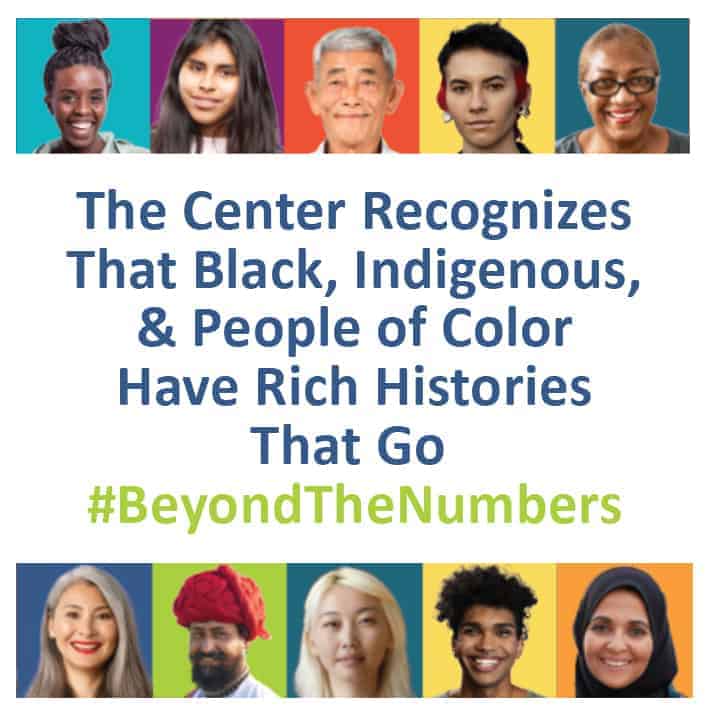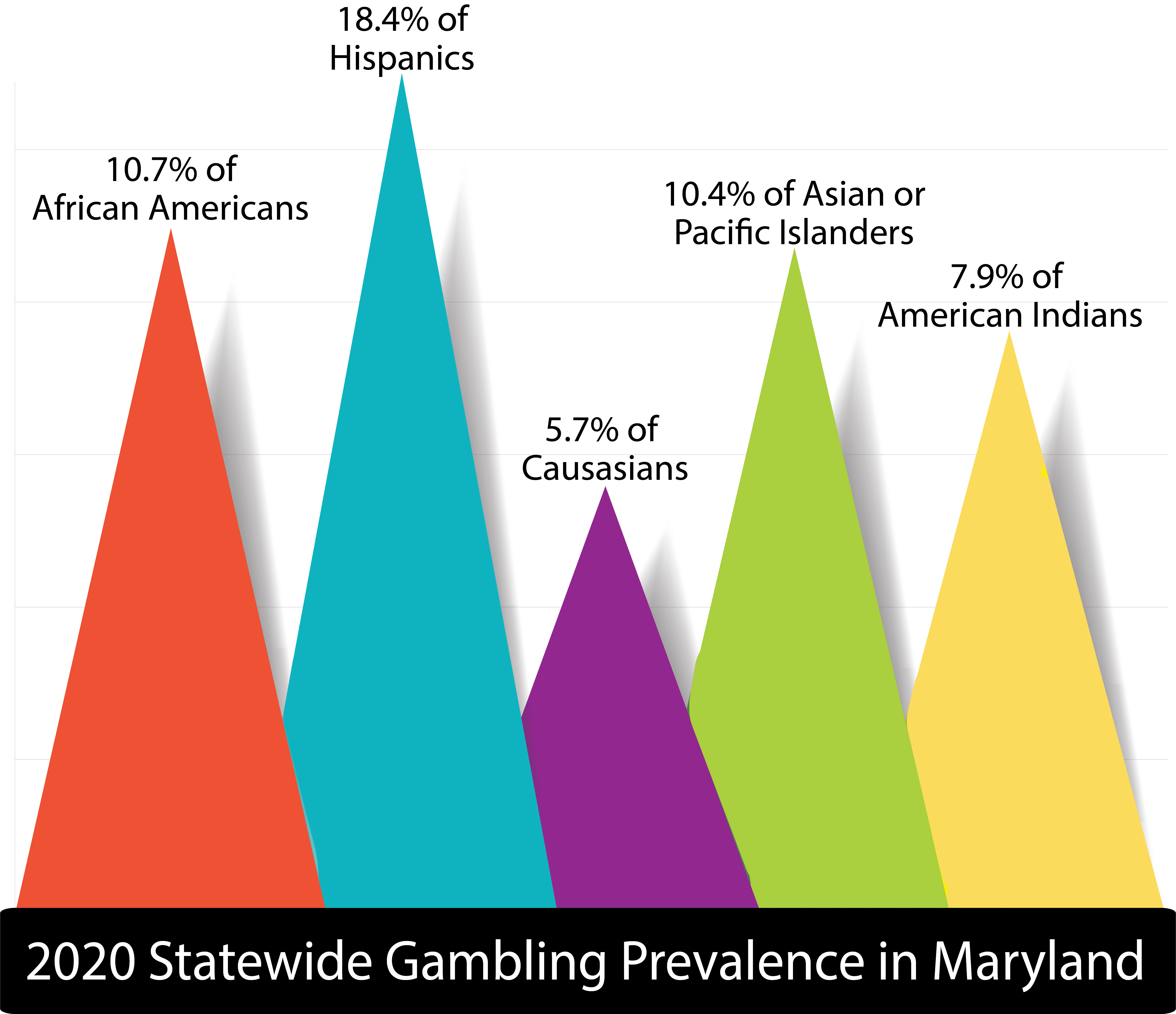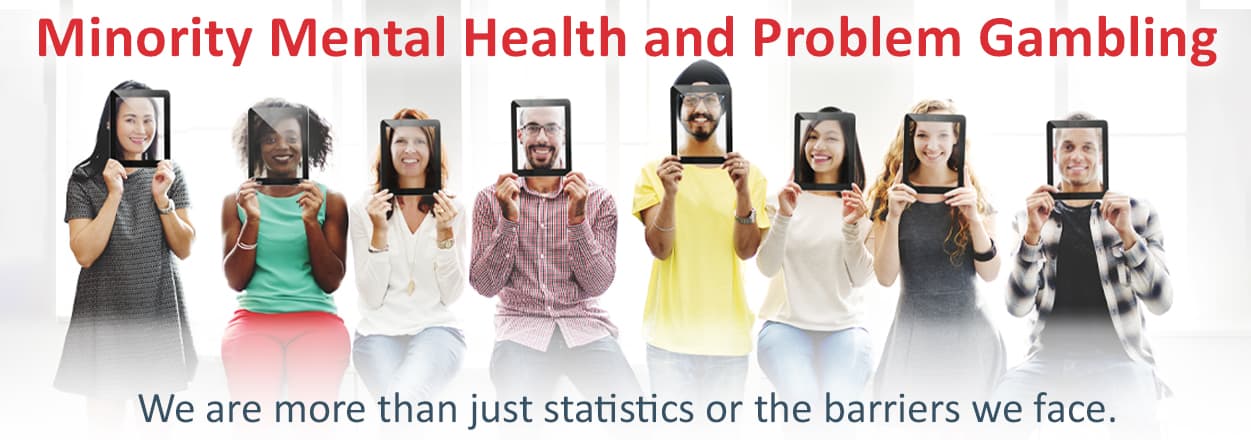Also known as Black, Indigenous, and People of Color (BIPOC) Mental Health Month. This July, the Maryland Center of Excellence on Problem Gambling (the Center) invites you to join us in promoting health equity issues of minorities with problem gambling prevention. Maryland data shows minority populations are at a greater risk of problem gambling behaviors. Help us raise awareness of this health disparity and work to create equity in awareness, education, prevention, treatment, and recovery for all Black, Indigenous, and People of Color with a gambling problem or a disorder.

CALLS TO ACTION
For the progression of mental health and well-being within multiracial communities, the following calls to action are proposed:
- Practitioners must explore the nuances of multiracial identities and the unique needs of each individual through diversified education and cultural humility.
- Include opportunities for multiracial identification in screening tools, data collection, and research.
- Fund and promote the inclusion of multiracial resources.
Minority Mental Health Month
Mental health disorders are common among people involved in the criminal justice system. Minority populations are disproportionately involved in the criminal justice system, thus increasing the likelihood of a mental health disorder among these populations. In addition, minority populations are less likely to seek mental health care due to the stigma of seeking help (American Psychiatric Association, 2017).
Although the research is limited, studies conducted on problem gambling and race have consistently revealed that BIPOC populations are more likely to suffer from problematic gambling behaviors when compared to the Caucasian population.
According to the Statewide Gambling Prevalence in Maryland, 2020, 18.4% of Hispanics, 10.7% African Americans, 10.4% Asian or Pacific Islanders, 7.9% of American Indians, and 5.7% of Caucasians have a gambling disorder. Across all BIPOC populations, persons with a gambling disorder disorder are more prevalent when compared to the general population.

How To Advocate For Your Mental Health

- Advocate for yourself. Share your needs and desires with your providers.
- Ask for providers who are culturally responsive and have experience working with individuals of similar identities to you.
- Ask your provider to document everything that is discussed, including any denials of treatments that you want.
- Seek combinations of mental health care that is right for your unique needs.

- Avoid mental health care due to shame.
- Feel obligated to choose a Western model of mental health care.
- Exclusively use one type of mental health care without exploring all options that feel right to you.




